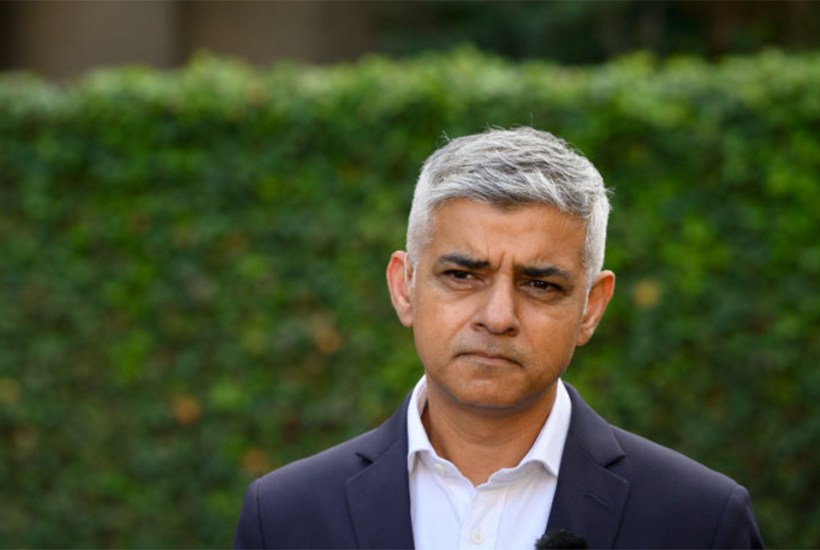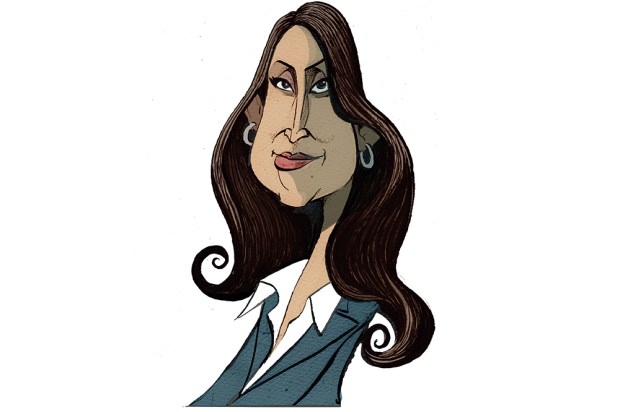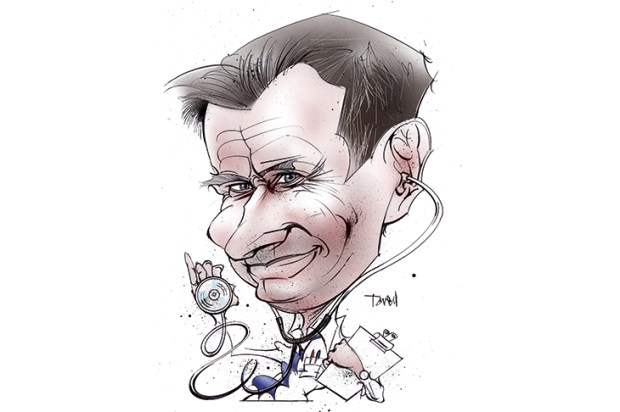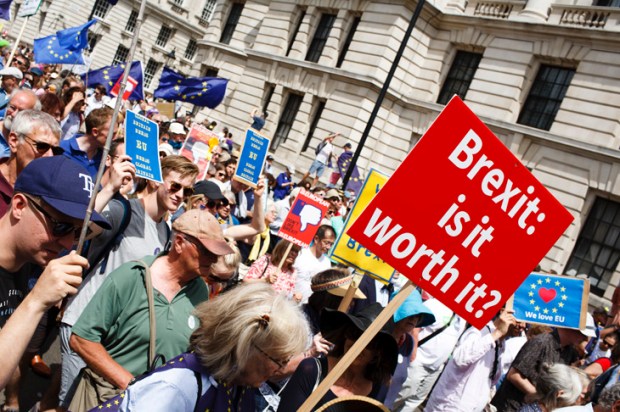For most of this year it was widely accepted that the Tories had given up on London. Sadiq Khan seemed unbeatable and the party’s hunt for a mayoral candidate to run against him became a farce as various ‘big names’ refused to run. Then Daniel Korski, the frontrunner for the candidacy, had to drop out over a #MeToo row and it fell to Susan Hall to lead the charge. And yet, despite the political drama, the Tories are within touching distance of victory at City Hall – just a couple of points behind Labour in the polls. London looks winnable.
When I meet Khan for an interview in front of an audience at Labour party conference, he tells me he’s taking nothing for granted. ‘I’m the least complacent person you will find,’ he says. ‘Why is it going to be tough? The government has deliberately changed the rules of the game and moved the goalposts to make it more difficult.’
Khan is referring to the changes to the voting system. Until now, Londoners have been able to vote for a second- and third-preference candidate. The Labour candidate may, for example, pick up second-preference votes for those who put Greens and Lib Dems first. The new rules, which come into effect for May’s election, will impose a single-vote, first-past-the-post system. So you can either cast a protest vote or choose someone who may win. You can’t do both. Voters must prove their identities at the polling station. ‘Twenty per cent of Londoners who are eligible to vote have not got photo ID,’ Khan says. ‘They tend to be black, Asian and minority ethnic Londoners… The Tories are so determined to win and this is one of the reasons why, by the way, they are the most successful political party in the western world.’
But there are other reasons Khan may struggle to win. Half of all Londoners think he’s doing badly. They are worried about rising crime, unaffordable housing and failing transport. The policy that has attracted the most attention is the expansion of the Ultra Low Emission Zone. Keir Starmer blamed Ulez for Labour’s failure to win the Uxbridge by-election. ‘Nobody likes to be unpopular,’ Khan says. ‘But you’ve got to have your moral compass. You’ve got to have your manifesto. You’ve got to know what you believe in.’
Khan sees Ulez as a moral mission. He likens it to the Labour government banning smoking in public places in 2007. ‘[It was] incredibly unpopular in some quarters. So look, when you’re trying to bring about transformative change, sometimes there is a short-term price to pay.’
Khan says Ulez is backed by scientific evidence – but is it a settled issue? Research suggests London’s air was 20 times more polluted in the 17th century than it is now, and an Imperial College study suggests Ulez has helped reduce nitrogen dioxide by just 3 per cent. If a consensus were to emerge that Ulez isn’t effective, would he change tack? ‘Experts will always disagree. There’s nothing wrong with them disagreeing. It’s good for experts to have the opposite of groupthink in relation to evidence,’ he says. ‘But because of all the evidence I’ve seen – not just from the environmental research group; Imperial College, King’s College, Queen Mary’s – I’m really confident in relation to the fact that air pollution is bad.’
But even if London’s air pollution is bad, it doesn’t necessarily follow that Ulez makes a difference. ‘I’m quite confident that the evidence shows that our policies work,’ he insists. ‘There will be others who disagree. And that’s one of the joys of a democracy. You can have that debate and that discussion. And then in the end, I, as the mayor, have got to make the call.’
We meet a week after Susan Hall suggested that Jewish communities in London fear Khan. ‘Weaponising Jewish people is wrong,’ he says. ‘My fear is we may be seeing from the Conservatives a rerun of the 2016 mayoral contest’ – when Zac Goldsmith was accused by his own side of running a ‘disgusting’ smear campaign which attempted to connect Khan to Islamist extremists.
Khan says the authorities need to be ‘vigilant and never complacent’ about the risk of anti-Semitic hate crimes following Hamas’s terror attacks. Would he condemn pro-Palestinian Londoners waving flags in support of Hamas? ‘Waving the flag of Hamas is against the law. Hamas is proscribed. And the police are making sure that they enforce the law. There’s obviously a distinction between the right to freedom to protest and so forth, but nobody likes to see people scared as a consequence of the actions of others,’ he says. ‘It’s really important… that you can make sure your views are heard. But we can’t allow tensions and problems overseas to spill over in London… There are people who, because their place of worship is a synagogue, need security outside it 24 hours a day, seven days a week. They could be targets for hate crime. And what we must not allow to happen is for there to be an increase in hate crime in London because of what’s happened in the Middle East.’
Khan says he’s running for a third term because being a Labour mayor under a Labour prime minister – all things being equal – would allow him to do more. But not everything. When I ask him when his drugs commission (which is looking at whether the law on cannabis should be relaxed) will conclude, he lets slip that it has effectively been shelved. ‘I just think because of the pandemic and other things happening, bandwidth has been an issue, bearing in mind we’ve got to reform the police service,’ he says. ‘I think, if I’m frank, it’s a bit on the back burner.’
One issue that has occupied Khan has been the rise in working from home as a result of the pandemic. ‘I was a lawyer for 11 years and I learnt a huge amount being in the office by shadowing people. I worry that people don’t understand what they lose out on by not being in the office.’
Transport for London data shows that workers are finally starting to return to the office. ‘On a Tuesday, Wednesday, Thursday, we’re basically back. On a Monday, we’re doing quite well, about 80 per cent [of pre-pandemic figures]. And it’s going up every Monday,’ he says. Office Fridays are proving a hard sell still, but ‘weekend public transport is 125 per cent versus pre-pandemic. London is back.’ Next will be for London to decide whether it wants Khan back.
Got something to add? Join the discussion and comment below.
Get 10 issues for just $10
Subscribe to The Spectator Australia today for the next 10 magazine issues, plus full online access, for just $10.
You might disagree with half of it, but you’ll enjoy reading all of it. Try your first month for free, then just $2 a week for the remainder of your first year.














Comments
Don't miss out
Join the conversation with other Spectator Australia readers. Subscribe to leave a comment.
SUBSCRIBEAlready a subscriber? Log in